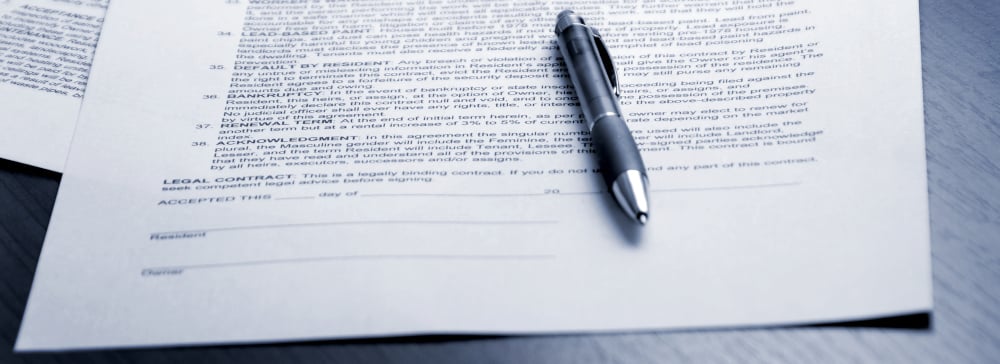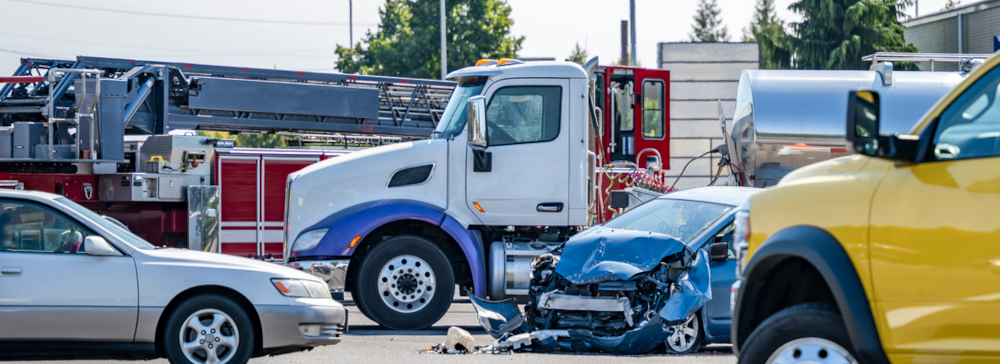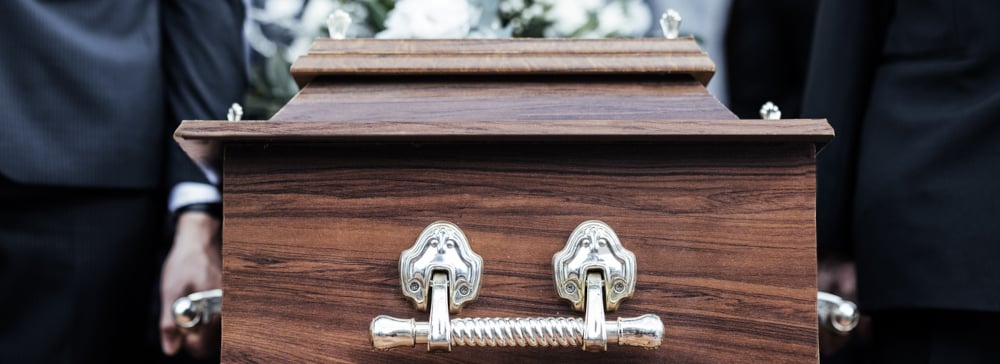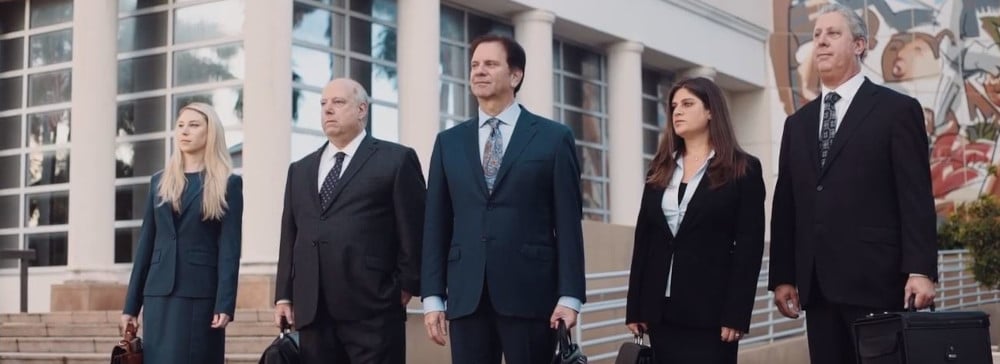Table of Contents
In Florida, when a wrongful death has occurred, family members may be able to sue the negligent parties for compensation. When they do, they will need a Fort Lauderdale wrongful death lawyer to advance a strong and compelling case. Leveraging decades of experience litigating these complicated and emotionally charged claims, the attorneys of Kogan & DiSalvo are well-equipped to help those who have unjustly lost family members.
When you need compassionate, one-on-one guidance after the wrongful death of a loved one, you can count on our dedicated professionals. A skilled injury lawyer in Ft Lauderdale can hold responsible parties accountable and aggressively pursue the full money damages to which you are entitled.

The Florida wrongful death Statute § 768.19 defines wrongful death as follows: the death of a person caused by the wrongful act, negligence, default, or breach of contract or warranty of any person, including those occurring on navigable waters. When a wrongful death occurs, eligible family members of the decedent may file a civil lawsuit for compensation.
If the person had not died due to these negligent or reckless actions, they would have been able to file a personal injury lawsuit against those responsible. Although they are no longer here, it is still possible to file a wrongful death lawsuit on behalf of their estate so that their survivors may receive compensation.

Only the personal representative of the decedent’s estate can file a wrongful death lawsuit on behalf of surviving family members. The personal representative is required to list all potential beneficiaries when the lawsuit is filed and their relationship to the decedent.
The personal representative is named in the decedent’s will. While the personal representative is often a family member, the decedent may have named a financial professional or someone well-versed in handling estate matters.
If the decedent died without a will or intestate, a probate judge generally appoints the personal representative. Florida’s Wrongful Death Act allows the surviving spouse, parents, children, blood relatives, and adoptive siblings who are dependent on the decedent for support or services to seek compensation in a wrongful death lawsuit.

The statute of limitations for filing a Florida wrongful death lawsuit is generally two years from the death date, not the date of the accident. Failure to file a wrongful death lawsuit within this timeframe usually means the case cannot proceed.
There is a critical exception to this statute of limitations. If the death was due to murder or manslaughter, there is no statute of limitations for filing a wrongful death lawsuit.

After a wrongful death in Florida, there is a process for seeking civil damages.

According to the CDC, accidents are the fourth most common cause of catastrophic injuries in Florida. Some of the most common causes of fatal accidents include the following:
There is no set time for settling a wrongful death case. Everything depends upon the specific circumstances of your claim. While 18 months is the average, some wrongful death cases settle much sooner, and others may not settle for several years.

To prove negligence in a wrongful death case, our team at Kogan & DiSalvo must prove that the defendants owed the decedent a duty of care. For example, a person driving a car must obey the rules of the road to keep everyone safe.
Next, the attorney must prove that the defendant breached this duty of care. Using the fatal car accident example, the attorney must show how this breach happened, such as speeding, running a red light, or driving while under the influence.
The attorney must then show that this breach of duty directly caused the fatality. Finally, the defendant’s negligence resulted in damages, whether from the family’s emotional pain and suffering or the financial issues ensuing from the death.

Damages in a wrongful death case are either economic, non-economic, or punitive. In Florida, there is no cap on economic or non-economic damages in a wrongful death lawsuit.
Determining the amount of economic damages is relatively straightforward, as it consists of calculating expenses such as medical and funeral bills, loss of earnings based on the decedent’s life expectancy, loss of retirement benefits due to an untimely death, and more.
Non-economic damages are more subjective and more complicated to quantify. These damages involve the pain and suffering and the loss of the enjoyment of life affecting the decedent’s spouse, children, or parents.
Economic Damages
Examples of economic damages may include:
Non-economic Damages
Under Florida law, the surviving spouse may recover for loss of companionship and protection. Surviving minor children may recover for the loss of parental companionship and guidance. Surviving adult children may recover these damages if there is no surviving spouse. Other non-economic damages include mental and emotional pain and injury.
Punitive Damages
Punitive means “punish.” When the defendant’s behavior leading to the wrongful death was particularly egregious, such as drunk driving, the jury may award punitive damages. They are usually imposed to make an example of the negligent party to deter others from behaving in the same fashion or committing similar wrongful behavior. For instance, if a driver with a prior history of drunken driving arrests causes an accident and kills someone, punitive damages may be awarded.
Unlike economic or non-economic damages, Florida does pose a cap on punitive damages. It is three times the amount of compensatory damages, or up to $500,000.

The Wrongful Death Act in Florida states that surviving family members may seek compensation for the deceased’s wrongful death. However, the only person who can legally file a wrongful death suit is the personal representative (also known as the executor) of the deceased’s estate. The representative must be a resident of Florida, have a vested interest in the estate, and not be under any legal disability.
In cases where no will has been created, or no personal representative has been designated within the will, the courts will typically allow the spouse of the deceased to file a claim.
A wrongful death claim in Florida can seek monetary damages for the following types of losses:
When determining how much compensation to award, the courts will look at the relationship with the deceased person, the life expectancies of both the deceased and surviving family members, and the net income of the deceased before they passed away.
As survivors seek justice for the needless loss of a loved one, they should first speak to a wrongful death lawyer Fort Lauderdale has come to respect. Here at Kogan & DiSalvo, we are passionate about helping clients rebuild their lives, and work tirelessly to create an attentive and supportive environment as we pursue maximum damages for the wrongful death of your loved one.

In Fort Lauderdale, it is not only surviving family members who may claim compensation but also the decedent’s estate. The estate includes any assets that belonged to the deceased and were in their name alone. This compensation will go directly to the estate and not to surviving family members. This compensation may include:
In addition, survival actions can also be made on behalf of the estate. A survival action claim seeks to recover damages for the pain and suffering the decedent suffered from their injuries before death, but it is payable to the decedent’s estate.
There is no average amount for wrongful death damages in Florida. Every settlement or jury decision is based on factors concerning the individual decedent. Because economic damages are partly based on life expectancy, an older victim’s estate or family may not receive as much in damages as that of a younger person. Again, it all depends on the unique circumstances of the case.

It is not unusual for the victim to hold some responsibility in an accident. If the decedent was partly responsible for the accident that claimed their life, it is still possible to file a Florida wrongful death lawsuit. However, the amount of damages is reduced by the percentage of the decedent’s fault as determined by a jury.
Florida follows a modified comparative negligence standard when it comes to liability. If a party is found to hold more than 50 percent of fault, they cannot recover damages. If it turns out that the decedent was determined to be 10 percent at fault for the accident, any damages are reduced by that amount. For example, a $200,000 award is reduced to $180,000.
There is an exception if the wrongful death was due to medical malpractice. For these claims, Florida’s former pure comparative negligence standard still holds. That means that even if the deceased was more than 50 percent responsible for the circumstances leading to their demise, the estate could still file a lawsuit to recover damages. If the decedent was found to be 60 percent responsible, the wrongful death lawsuit could recover the remaining 40 percent from the defendants.

When you suddenly lose a loved one under tragic circumstances, you need time to deal with your grief. However, as difficult as it is, it is crucial to consult a Fort Lauderdale wrongful death attorney as soon as possible. Waiting too long can risk losing vital evidence. For example, witnesses may move away or be difficult to locate. Dashcam footage and surveillance videos may be erased. Your attorney investigates the case thoroughly and identifies all potential defendants in a wrongful death claim.
Expect the evidence-gathering process to last from a few weeks to a few months, depending on the case’s specifics.
Medical and police reports are key evidence used in wrongful death cases. In the case of accidents, surveillance video of the accident scene can reveal what happened and who was at fault. If there are eyewitnesses to a fatal accident, your lawyer interviews them.
For fatal car or truck accidents, most modern vehicles contain black boxes. Technically, these are called electronic control modules or event data recorders. Unlike an airplane, a car’s black box does not continuously record data while operating. Data is not recorded unless there is a collision.
When a crash occurs, the black box records critical information such as speed changes, brake application, the pedals pressed, and driver safety belt status. It also records multiple events in a crash. For example, if a sideswipe is followed by a head-on collision.
If a truck accident resulted in a fatality, a Fort Lauderdale wrongful death lawyer will examine whether the truck driver or trucking company violated Federal Motor Carrier Safety Administration (FMCSA) regulations.
If medical malpractice causes the death, the lawyer analyzes medical records and other information to determine whether the facts support the claim. If the facts support it, the next step is to have a medical expert conduct a review and decide whether there is a valid claim.

To prevail in a wrongful death claim in Florida, your lawyer must prove the following elements:

No matter the cause of the wrongful death, expert witnesses may prove invaluable in determining how the death occurred, as well as the economic aftermath. Your attorney hires the appropriate expert witnesses to testify, depending on the cause of the wrongful death.
These experts must possess the qualifications in their specific fields to review the evidence and testify. They also can explain technical concepts in ways that are understandable to the jury. They are also able to directly address issues of liability.
Expert witnesses may include the following:

Insurance companies involved in wrongful death claims may try to settle quickly and cheaply. Minimizing or denying compensation is their business model. Insurers know they are dealing with a personal representative who is often a grieving family member of the decedent.
A Fort Lauderdale wrongful death attorney will negotiate with the at-fault party’s insurance company so that the family can mourn and come to terms with their loss. After carefully analyzing the case, we will know the value and fight to make a fair settlement.
Your attorney handles everything necessary to pursue justice. Rather than focus on legal or insurance issues or making sure key documents are filed on time, family members can focus on healing and rebuilding their lives.

During this challenging time, you need the services of a compassionate Fort Lauderdale personal injury lawyer at Kogan & DiSalvo. Schedule a free, no-obligation consultation today. We work on a contingency basis, so there is no fee unless you receive compensation. While most cases are settled, we will take your case to court if necessary. Our track record is second to none.
If you are injured and unable to come to us,
our attorney will come to you - there is no charge for us to do so.